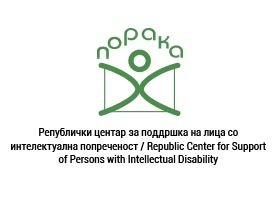The Convention on the Rights of Persons with Disabilities is the first international human rights treaty of the twenty-first century. Since its opening for signature on 30th of March 2007, the Convention on the Rights of Persons with Disabilities has had a large number of signatures and ratifications, and has broken new ground by being the first UN human rights treaty to be ratified by an economic integration organization (the European Union). However, there are still many States that have not signed or ratified the Convention and its Optional Protocol.
On 10th of May 2011, Colombia became the 100th country to ratify this Convention. In doing so, it joins the ranks of those countries that now support greater access, backed by their legal systems, for citizens with disabilities to fully participate in the lives of their communities, including the political process and health and education services.
“This is an important milestone for Colombia and for the global community. The Convention on the Rights of Persons with Disabilities is a powerful tool for inclusion and development. Let us use it to make concrete improvements in the lives of persons with disabilities,” said United Nations Secretary-General Ban Ki-moon, commenting on the 100th ratification. Sha Zukang, the United Nations Under-Secretary-General of the Department of Economic and Social Affairs, which serves as the secretariat for the Convention on the Rights of Persons with Disabilities, said: “We are greatly encouraged by this 100th ratification of the Convention. This is a great achievement by the international community in working towards a just and equitable society, based on equality and equal opportunity for all, including persons with disabilities.”
“Achieving the threshold of 100 ratifications demonstrates that the Convention has a widespread support by the international community” said Diane Richler, International Disability Alliance (IDA) Chair, “Many countries have cemented their commitment to promote and safeguard the rights of persons with disabilities; however, there still is a long way ahead to ensure the full respect for the dignity, non-discrimination, inclusion and participation of persons with disabilities on an equal basis with others”.
On this day, IDA calls upon all States that have not yet ratified the Convention to undertake all necessary legal actions to ensure the swift ratification of the Convention without reservations or interpretations, and reminds those that have ratified of the need for proactive implementation of the Convention through legislative and programmatic action, with the active involvement of representative organisations of persons with disabilities at national, regional and international levels.
EASPD very much welcomes the ratification on the UN Convention on the Rights of Persons with Disabilities in Columbia and hopes that many countries will follow the good example as ten Member States still have not ratifies the Convention. Nevertheless, EASPD reminds the European Union to ratify the Optional protocol to the Convention.
States are urged also to ratify the Optional Protocol to allow individuals and groups to submit complaints of human rights violations directly to the international committee of experts. These complaints procedures are particularly important to ensure the effective delivery of justice for human rights violations.
IDA also urges States that have ratified with reservations or declarations to withdraw them, including those that have been challenged by other States because being against the object and purpose of the Convention. Ratification of both the Convention and its Optional Protocol, without reservations and/or declarations, demonstrates a State’s clear commitment to the universal human rights enshrined in the Convention on the Rights of Persons with Disabilities.
©2023, Порака. Сите права задржани.
Изработено од Артифекс Креативе



